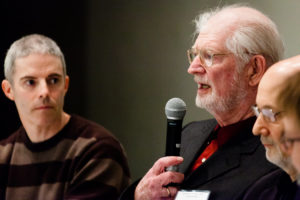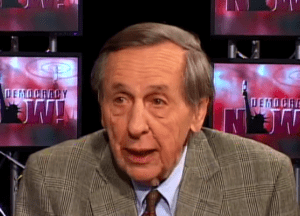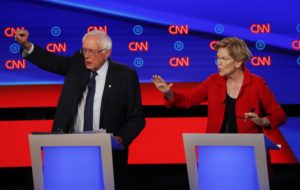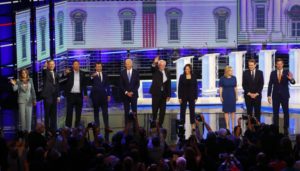Marie Cocco: An End to Reaganism
Expect a battle royal as the newly empowered Democrats seek to make the economy work for those Americans who don't make more than $1 million per year.WASHINGTON — To understand what it means to have the Democrats take control of Congress, you must look beyond Iraq — and past Ronald Reagan.
Public frustration at the unrelenting horror of Iraq formed the core of discontent that catapulted Democrats to control of the House and Senate for the first time in more than a decade. But public disenchantment with the economy is just as likely to animate the new discourse on Capitol Hill.
The cacophony will jar those in what can only be called the ruling class. That is: the White House, Wall Street, the business lobbyists and the television talkers who all gush with know-it-all glibness that the United States’ economy is a paragon of efficiency and prosperity for anyone willing to work hard enough to grasp its rewards. It includes those who claim the obvious benefits of unfettered trade based on the labor of dirt-poor and often politically oppressed peasants; and those who say that when your company summarily eliminates or cuts your promised pension or health insurance, well, it’s just something you have to live with.
This is the story line that has been promoted, with rare dissent, since Reagan’s rosy prediction of economic utopia achieved through tax cuts, shrunken government and hostility toward unions. After Reagan, the plotline was embellished and embedded in conservative Republican dogma that ultimately gave us a president with a blinkered economic policy that consists mostly of tax cuts for industry and for individuals who already are well off. It resulted in a Congress that turned Capitol Hill into a favor bank for favored industries and a sinkhole for ordinary people with such prosaic desires as a decent wage, a job with benefits and a fair chance to send a kid to college.
It stunned many election-night observers to discover that voters named the economy nearly as often as Iraq and corruption as issues that motivated them in November. Fully 59 percent of those who said the economy was “extremely important” in casting their ballots chose Democratic candidates, according to network exit polls. Post-election polls show the economy second to Iraq as the issue of most concern.
This isn’t news to Democrats. It is no accident that five of the six items on their consensus agenda for early legislative action are efforts to ameliorate the economic distress that working- and middle-class people have felt for years — while being told that everything is OK.
Raising the minimum wage is properly seen as only the beginning of a Democratic drive to shore up the economic underpinnings of those who live on stagnant paychecks. The supports have eroded through nearly three decades of global economic change and hands-off policies at home. Democrats will try early to reduce the cost of prescription drugs, energy and higher education. But this, too, is only a preview of what could — and should — logically become the party’s effort to present a post-Reagan (and for that matter, post-Clinton) economic policy that mends the job-based safety net that corporate America systematically shreds.
If Republicans have heard neither the voters’ distress nor the Democrats’ response, it is because they’ve been willfully deaf.
Rep. Barney Frank, D-Mass., who is to chair the House Financial Services Committee, insists on a “grand bargain” to raise worker wages and benefits if corporations want favorable trade deals. Rep. George Miller, D-Calif., incoming chairman of the Education and Workforce Committee, plans legislation to make it easier for workers to form unions, and so blunt the impact of a robust industry of anti-union consultants. “I think there’s more support than you might suggest,” Miller told me when I questioned the depth of bipartisan support for a pro-labor measure. “I don’t suggest it’s in the administration yet.”
President Bush is characteristically inattentive and unaccommodating. “The elections have not reversed the laws of economics,” the president wrote in The Wall Street Journal on Wednesday. Making his tax cuts permanent, he argued, would do the trick. Those cuts, according to the nonpartisan Urban Institute-Brookings Institution Tax Policy Center, have given an average of $112,000 to households with incomes of $1 million or more, and $750 to those in the middle of the income spectrum. Where Bush sees a panacea, Democrats see a portrait of excess.
The clash cannot be reconciled; presidential vetoes and angry rhetoric are to be expected. Not until 2008 will voters get to decide if they wish, at last, to bury Reaganism in the face of new economic realities.
Your support matters…Independent journalism is under threat and overshadowed by heavily funded mainstream media.
You can help level the playing field. Become a member.
Your tax-deductible contribution keeps us digging beneath the headlines to give you thought-provoking, investigative reporting and analysis that unearths what's really happening- without compromise.
Give today to support our courageous, independent journalists.






You need to be a supporter to comment.
There are currently no responses to this article.
Be the first to respond.